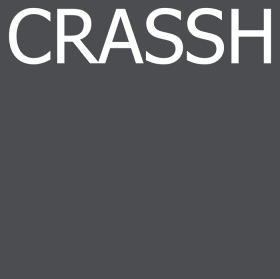
The Centre for Research in the Arts, Social Sciences and Humanities (CRASSH) is a major international centre for interdisciplinary, collaborative research in the arts, social sciences and humanities.
CRASSH has salaried post-doctoral fellows, hosting each year early career fellows from Cambridge, international visiting fellows, Humanitas distinguished Visiting Professorships, and Mellon CDI Visiting Professorships. Each year, via an internal competition, CRASSH selects, funds and organizes 25 interdisciplinary conferences and 15 Faculty research groups, which meet fortnightly through the year.
Through the Mellon Disciplinary Innovation programme, the Centre runs two graduate teaching courses each year taught by four Faculty Teaching Fellows. By virtue of a collaboration with the Huntington Institute and UCLA, CRASSH awards two fellowships a year on material and visual culture in the early modern period; by virtue of a collaboration with McGill, Montreal, CRASSH awards two fellowships a year working on conversion in the early modern/Renaissance period. CRASSH hosts the University Strategic Network for Digital Humanities, under which is run three funded projects (2 AHRC Knowledge Exchange, one CIGREF-funded project on intellectual property).
The Centre hosts four major, five-year research projects (with funding from the ERC, Leverhulme Trust and Andrew W Mellon Foundation), and has networks and collaborations with Chicago, New York, Berkeley, UCLA, Uppsala, Toronto and Montreal.
CRASSH develops and submits around 8 large grant applications a year. Of the around £2m annual turnover spent on research in the arts, social sciences and humanities, the vast majority is raised by external grants. Members of the Unit make a major contribution to many CRASSH Faculty Research Groups. Wilson (French) is a joint convenor of the Cambridge Screen Media Group, which includes a strong input from MML. The Department of Slavonic Studies is a leading contributor to the East European Memory Studies Research Group, which functions in collaboration with the research project ‘Memory at War’ discussed above. Jones (French) and Sitaridou (Spanish and Portuguese) have been among the Faculty advisers for the CRASSH Graduate Research Group ‘Cambridge Endangered Languages and Cultures Group’. Several researchers in the Unit have contributed to a series of collective research initiatives on Performance, with events hosted at CRASSH and beyond.
Beyond the remit of CRASSH, there are several active research clusters and support for interdisciplinary and collaborative research in MML within and between Departments as described below.


